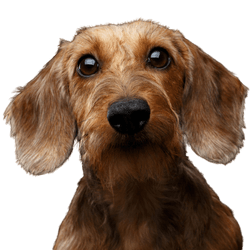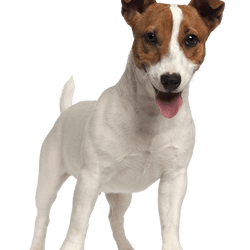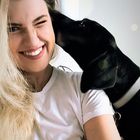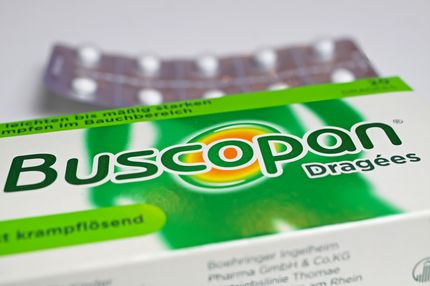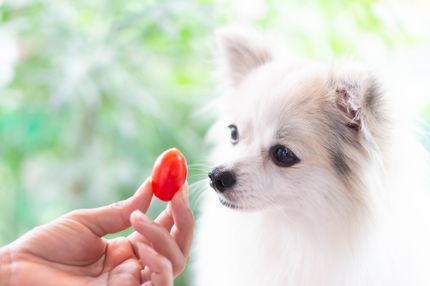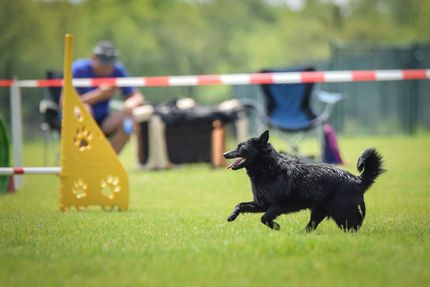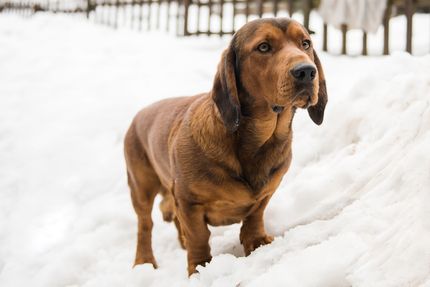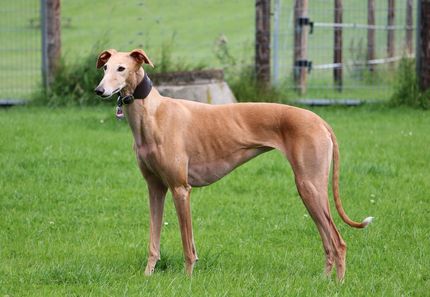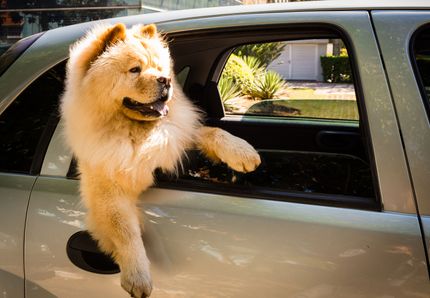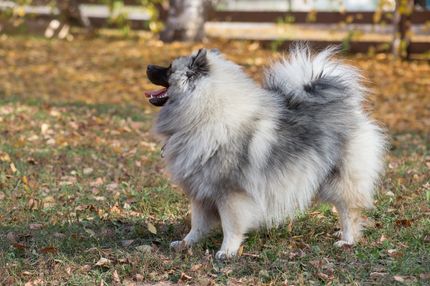Facts & Origin
Jack Russell Terrier and Dachshund in one
The Jackhound is a hybrid breed resulting from the deliberate crossing of a Jack Russell Terrier with a Dachshund (usually a short-haired dachshund). The aim of this mixture was to combine two popular hunting dog breeds - both small, enduring and with a strong character. The idea behind it: To create an active, courageous yet highly adaptable companion dog that is just as suitable for families as it is for sporty individuals.
The breed probably originated from the desire to combine the lively temperament of the Jack Russell with the somewhat calmer, down-to-earth nature of the Dachshund in order to achieve a more balanced behavior - both indoors and outdoors.
Name synonyms for the Jackhound
In addition to the name Jackshund, terms such as Jackweenie or Jack Dachshund Mix are also common. The variety of names often depends on the language area or the preference of the breeder, but they all mean the same mixed breed.
Criticism of the Jackhound
Criticism of the Jackhound mainly concerns the combination of two dog breeds, both of which have a pronounced hunting instinct and a high degree of independence. Depending on their disposition, Jackhounds can be very energetic and stubborn, which should not be underestimated when keeping them. In addition, their urge to move is often greater than their small body size would suggest.
There are also certain health risks, such as back problems due to the dachshund's elongated build, especially if it has a strong back. If the dog is not given sufficient physical and mental stimulation, it tends to become bored and display undesirable behavior such as excessive barking or digging.
Suitability of the Jackhound
With the right leadership, the Jackhound is a cheerful, curious and very loyal companion dog that is particularly suitable for active people. It needs clear rules, plenty of exercise and tasks to channel its energy into meaningful activities.
Although its size makes it suitable for smaller households or apartments, its nature requires exercise - walks, search games or dog sports can be ideal. The Jackhound feels particularly at home in families, with sprightly seniors or sporty owners who enjoy a clever, alert dog.

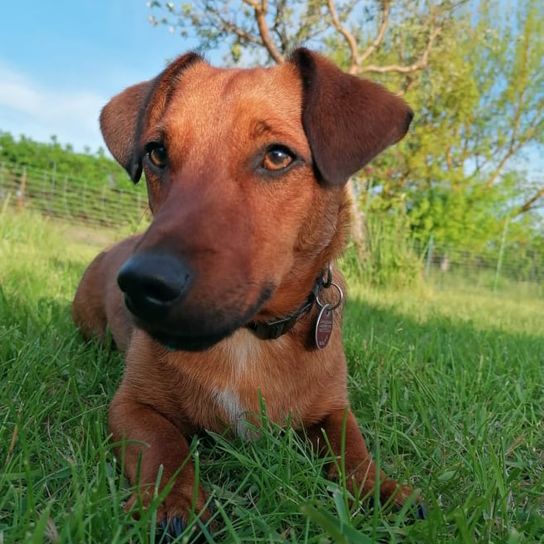
| Alternate Name | Jackweenie, Jack Dachshund mix |
| Origin | Germany - England |
| Life expectancy | 12 - 16 years |
| Care requirements | low-maintenance |
| Activity level | average - high |
| FCI group | not recognised |
| AKC group | not recognised |
| KC group | not recognised |
More Dachshund mixes
More Jack Russell Terrier mixes
Attitude, character and temperament of the breed
Possible character traits of the Jackhound
The Jackshund often combines the energy and courage of the Jack Russell Terrier with the tenacity and independence of the Dachshund. The result is usually a lively, clever and very self-confident little dog that likes to cooperate, but also quickly becomes bored if it is not challenged.
He often has a pronounced hunting instinct, shows curiosity, alertness and - depending on socialization - a certain scepticism towards strangers. At the same time, they are often very loyal and affectionate towards their humans. A Jackhound wants to belong, demands attention and needs clear, calm leadership. It is therefore well suited to owners with some experience who know how to provide structure for a small dog with a strong character.
Character
Usage
Possible diseases of the Jackhound
Like many hybrid breeds, the Jackhound also carries certain health risks that can originate from both lines. The susceptibility to back problems is particularly relevant if the dog inherits the elongated build of the Dachshund. This can lead to intervertebral disc problems if the dog is overweight or under heavy strain.
Patellar luxation, allergies or dental problems are also possible. A reputable breeder pays attention to healthy parents and provides information about typical breed stresses. In any case, it is important to handle the dog in a way that is easy on the back, to avoid frequent climbing of stairs and to ensure a balanced diet and regular exercise.

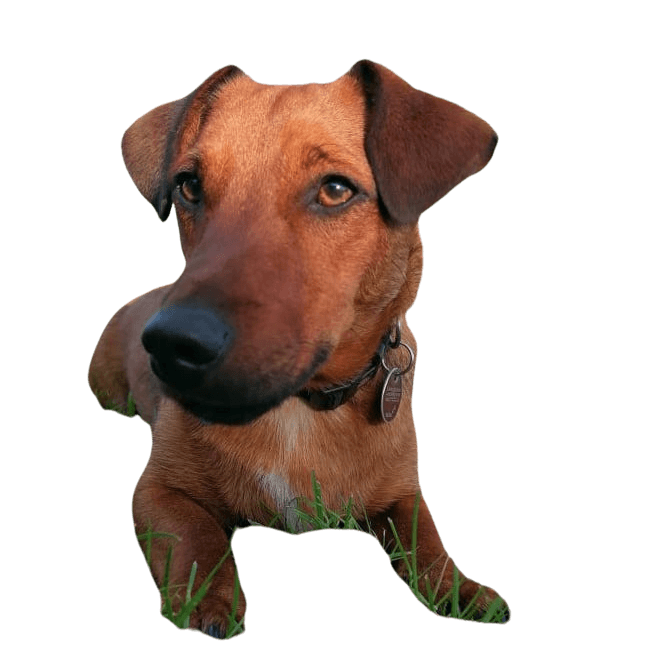
This is what a Jackhound can look like
In appearance, the Jackhound often lies somewhere between the two original breeds: elongated body, short to medium-length legs, usually a smooth, short coat that requires little grooming. The shoulder height is usually between 20 and 30 cm, the weight between 6 and 10 kilograms, depending on the individual disposition.
There are many color variations - from the typical white-brown-black of the Jack Russell to dachshund-typical brown or black tones. The ears are usually droopy, the gaze attentive, sometimes even cheeky - and the overall expression signals: small, but full of energy.
| Fur length | short |
| Fur | rough-haired |
| Ear shape | Floppy Ear - Tilt-ear |
| Tail | short - lang |
| Anatomy | strong, sporty |
| Size ♀ | 17 - 38 cm |
| Weight ♀ | 6 - 9 kg |
| Size ♂ | 17 - 38 cm |
| Weight ♂ | 6 - 9 kg |
| Suitable For | - |
Known Diseases
Dachshund Paralysis
By dachshund paralysis (discopathy) veterinarians mean paralysis of the limbs in dogs.
Overweight
Often, unfortunately, the dogs very much under excess weight. But the dogs themselves are never to blame!
Disc problems
Herniated disc in dogs (discopathy). Herniated discs or dachshund paralysis cause dogs severe pain.
Cataract
Cataracts are still one of the most common causes of blindness, even in dogs.
Numbness
Often occurs in old age.
Ataxia
Ataxia (from Greek ἀταξία ataxia 'disorder' 'irregularity') is a generic term in medicine for various disorders of movement coordination. Ataxia can occur even when there is no paralysis (paresis), that is, when there is normal muscle strength.
Atopy
Canine atopic dermatitis or environmental allergy is characterized by itching with scratching, biting, and rubbing of the face, paws, and belly
Dermatophytosis
Dermatophytosis (synonym dermatophytosis, from ancient Greek τὸ δέρμα derma, German 'skin' and ancient Greek φυτόν phyton, German 'plant') or tinea (Latin for 'woodworm', 'moth') is a skin fungal disease caused by specific fungi (dermatophytes).
extreme whiteness
May be associated with some other diseases.
Legg-Calve-Perthes
Legg-Calvé-Perthes disease (aseptic femoral head necrosis) is a growth disorder of the femoral head.
Dislocations
Lenticular and patella luxation occur in some breeds and affect the eye.
Myelopathy
Degenerative myelopathies of dogs are a series of slowly progressing neurological diseases associated with destruction of the spinal cord. These diseases are associated with slowly progressive movement disorders of the hindquarters.
FAQ
-
The most common health problems in Jack Russell Terriers and Dachshund mixes are allergies, dental and gum problems and joint problems.
-
The average life expectancy of a Jack Russell Terrier Dachshund mix is 12-15 years.
-
Jack Russell Terrier and Dachshund mixes generally get on well with children, but every dog is different. It's important to introduce any new pet to children gradually and under supervision to ensure everyone is comfortable.
-
The best way to train a Jack Russell Terrier Dachshund mix is with positive reinforcement methods such as treats, praise and play. Avoid negative reinforcement such as punishment, as this can make the dog fearful or aggressive.
-
It depends on the individual dog, but as a rule they need moderate to a lot of exercise for their size.

